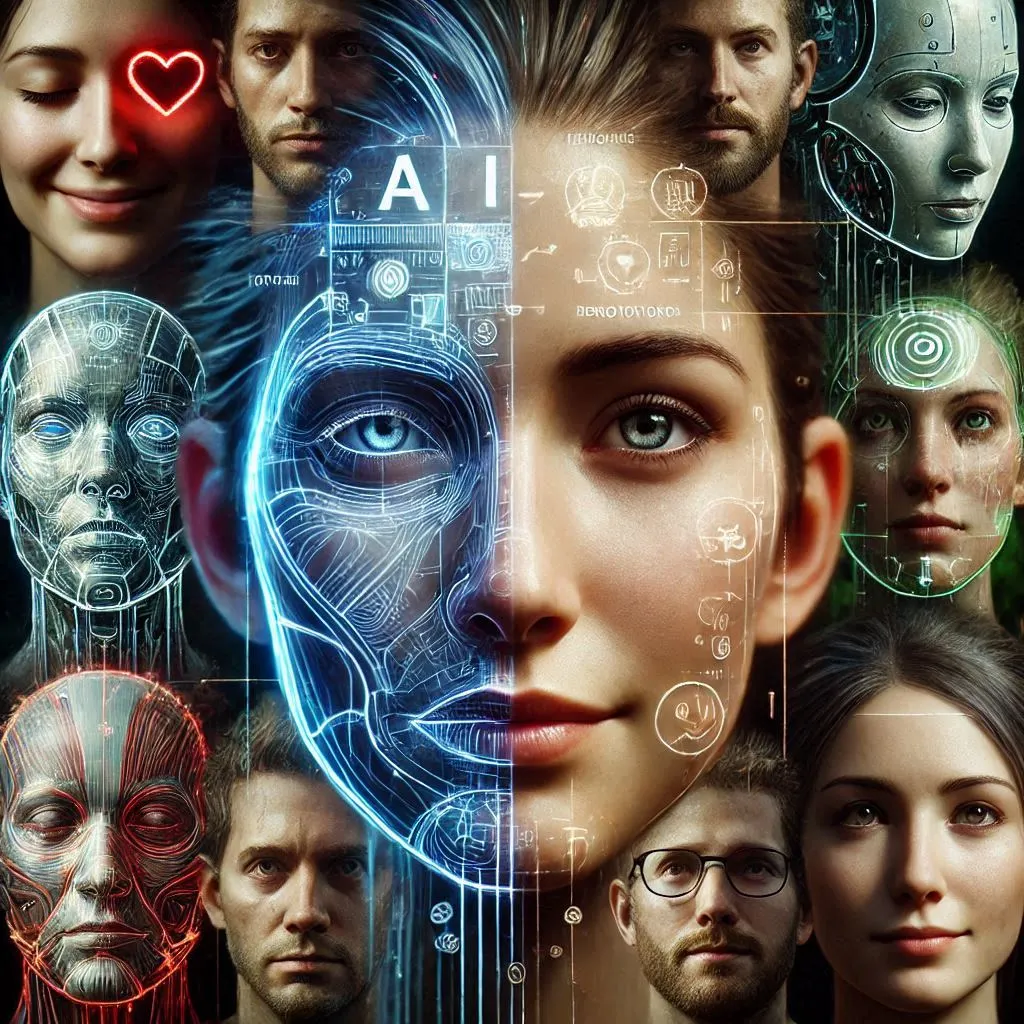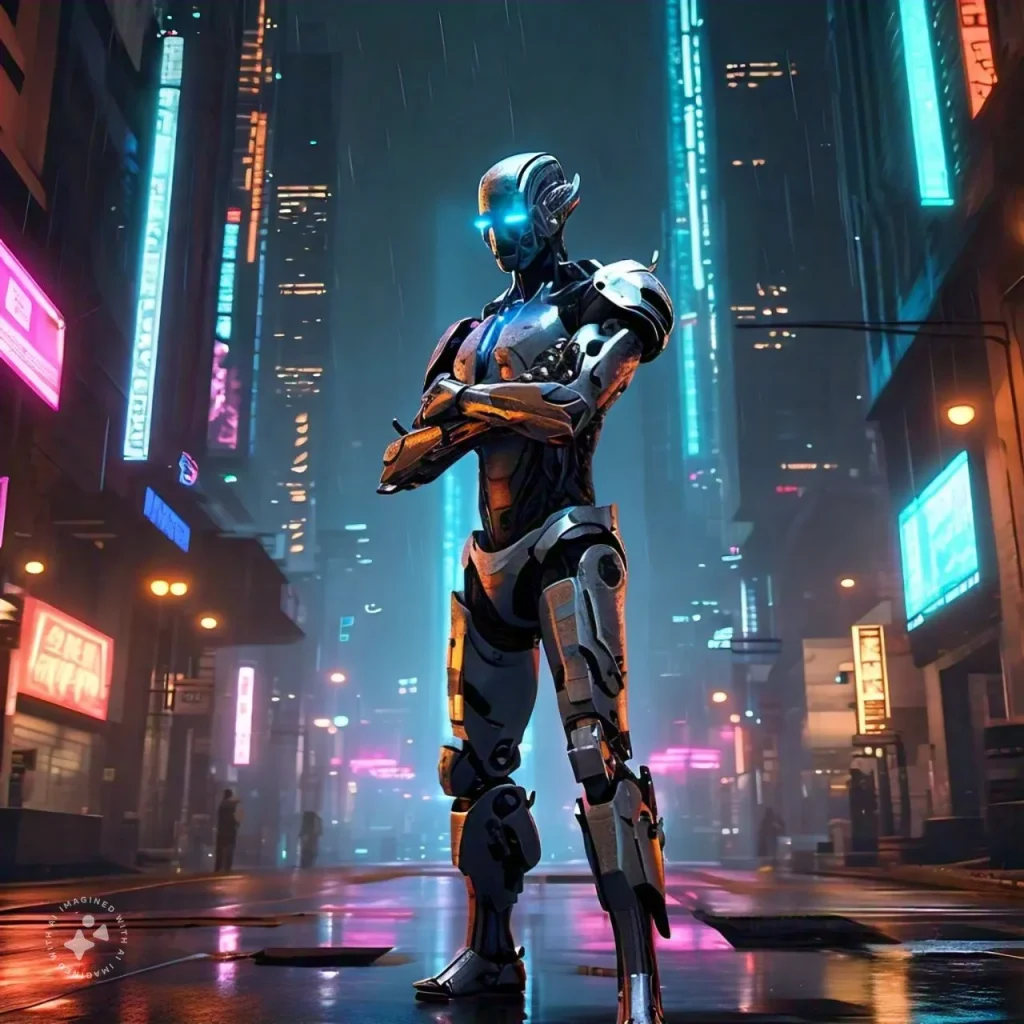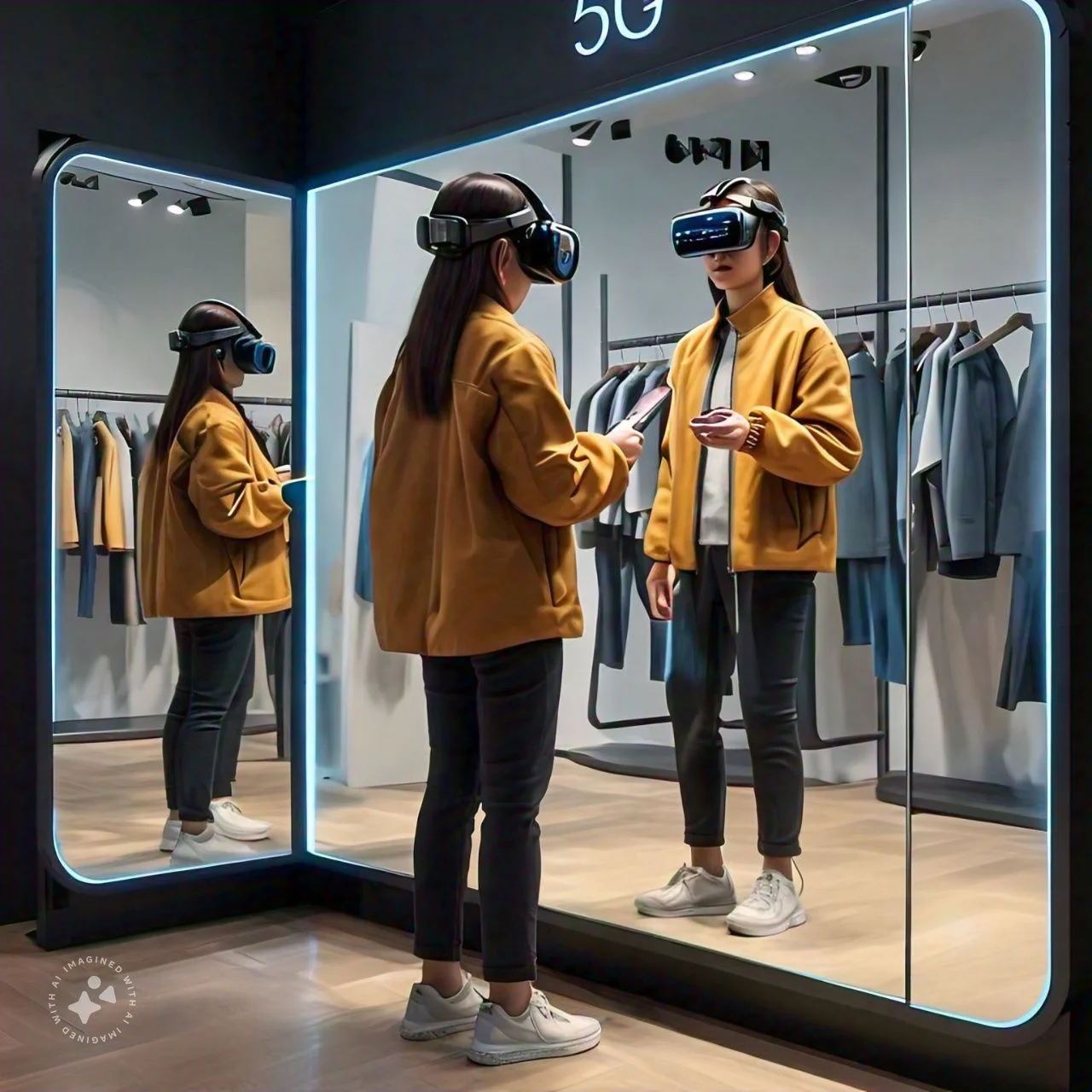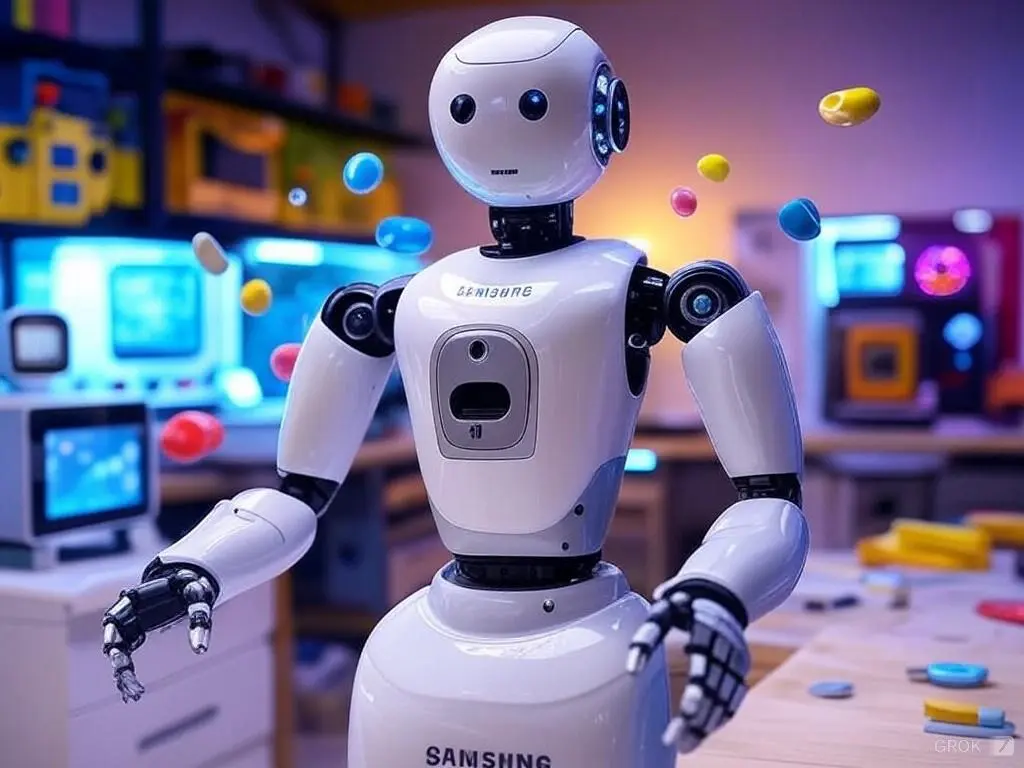
AI in Gaming: Shaping the Future of Play
Gaming is evolving rapidly, and Artificial Intelligence (AI) plays a central role in this transformation. AI is making games smarter, more engaging, and personalized. This article explores how AI is shaping the future of gaming, enhancing gameplay, and creating new possibilities. Let’s begin by examining how this technology is changing the gaming world.

What is AI in Gaming?
AI is when computers or machines can think and make decisions, much like humans. In video games, AI powers Non-Player Characters( NPCs) and game worlds react to the player’s actions. Unlike traditional games, where everything is the same every time, AI allows games to adapt and change as you play.

Key Uses of AI in Gaming:
- Learning from Players: AI-driven systems allow game characters learn from how players act. For example, if a player plays aggressively, intelligent NPCs can make enemies tougher to fight.
- Changing Environments: Some games use AI to dynamically generate new worlds, like jungles, cities, or mountains. This procedural generation ensures that each game feels fresh and unpredictable, enhancing replayability and immersion.
How AI Helps in Game Development
Making a video game takes time, but modern technology can help speed up the process. Here’s how:
- Automatic Level Creation: Advanced algorithms can create new levels in the game, like designing mazes or landscapes for players to explore.
- Character Designs: Machine learning in gaming can assist in designing characters, making them look different or have unique features based on the game’s world.
- Bug Detection and Correction: AI-powered tools can analyze and fix errors (bugs) in the game faster than humans.

Smarter Non-Player Characters (NPCs)
NPCs are characters in games that players don’t control. Intelligent systems helps these characters act more like real people by reacting to what the player does. This allows NPCs to:
- Reacting to Actions: NPCs can make decisions based on what the player does. For example, if you help an NPC, they might become friendly, but if you hurt them, they may try to get revenge.
- Challenging Players: In games like Alien: Isolation, learning algorithms make enemies smarter by adapting to how you play and changing their tactics, so you never know what they will do next.

Dynamic Storytelling
AI is changing how stories unfold in games. Instead of following a fixed path from start to finish, adaptive AI allow the story to shift based on your actions
- Multiple Endings: Games like Detroit: Become Human use intelligent algorithms to modify the story depending on the player’s choices, such as saving a character, which could change the ending.
- Personalized Stories: Behavioral AI adjusts the story depending on what you do in the game, making each experience unique.

Games Designed Just for You
AI makes games more fun by adjusting to your playstyle. AI tailors the experience by:
- Changing Difficulty: If you’re having trouble, adaptive algorithms can make the game easier. If the game feels too easy, it can make it harder.
- Adapting to Your Style: If you like exploring more than fighting, behavioral AI can alter the tasks to fit your style. For example, if you prefer puzzles over combat, smart technology might offer more puzzles tailored to your playstyle.

Realistic Graphics with AI
Graphics make games look real, and advanced algorithms help improve them. Here’s how:
- Improving Image Quality: Visual AI can sharpen graphics, making them look clearer without slowing the game down.
- Smooth Animations: Motion AI makes characters move naturally. For example, if a character is running, AI helps their arms and legs move smoothly like a real person.
AI in Virtual Reality (VR) and Augmented Reality (AR)
VR and AR are technologies that change how we interact with games. VR puts you inside the game world, and AR mixes the game with the real world. Smart technology improves these experiences by reacting to your actions in real time.
- Tracking Movements: Motion tracking AI follows your head and hand movements in VR games, making the game world adjust as you move.
- Real-World Interaction: In AR games like Pokémon GO, interactive AI places virtual objects in the real world through your phone’s camera, making it feel like they are really there.

Cloud Gaming and AI
Cloud gaming lets you play high-quality games on almost any device, even if it doesn’t have powerful hardware. Artificial Intelligence makes cloud gaming better by reducing lag and ensuring smooth gameplay.
- Reducing Lag: Predictive algorithms anticipate what you might do next, making sure the game doesn’t freeze or slow down.
- Optimizing Streaming: Streaming enhancement technology improves the streaming of games, ensuring smooth play even with slow internet connections.
Better Game Testing with AI
Before a video game is released, it must be tested. Automated testing can check a game faster and more accurately than humans.
- Simulating Player Behavior: Virtual testers (AI) play the game over and over, helping find bugs quickly.
- Testing Multiple Scenarios: Behavior simulation allows AI to test different situations, like what happens when a player takes a certain action, helping developers fix issues faster.
Multiplayer Games and AI
In multiplayer games, AI (Artificial Intelligence) makes the gaming experience better by helping to keep things fun and fair for everyone.
1. Balancing the Game
In many multiplayer games, some characters or players might become too powerful, making the game unfair. Game-balancing AI ensures that doesn’t happen. It constantly checks player performance and makes adjustments to:
- Reduce unfair advantages.
- Keep all characters and weapons balanced.
For example, if one weapon is too strong, the game might lower its damage slightly to maintain fairness.
2. AI Teammates
Not everyone always has a full team to play with. In games like Apex Legends, AI teammates, also called bots, fill in when there aren’t enough human players. These virtual teammates are smart because they:
- Make decisions during fights, like when to attack or hide.
- Support players by reviving them or sharing supplies.
AI teammates make the game enjoyable, even when you don’t have real friends or players to team up with.
3. Smarter Opponents
In competitive multiplayer games, AI opponents can act like real players. They learn from player behavior to:
- Challenge experienced players.
- Help beginners practice and improve their skills.

Accessibility in Gaming
Gaming should be fun and fair for everyone, including people with disabilities. Thanks to AI (Artificial Intelligence), games are now more accessible, allowing more players to enjoy them. Here’s how AI helps:
1. Voice Control
Some people cannot use traditional controllers to play games. AI-powered voice recognition lets players control the game with their voice. For example, saying “jump” or “attack” makes their character move, helping players who can’t use their hands.
2. Text-to-Speech and Speech-to-Text
- Text-to-Speech reads on-screen text out loud for players who may have trouble seeing.
- Speech-to-Text types what players say. This helps people who cannot type quickly or easily.
For example, if a game has a lot of dialogue, speech tools help players understand what’s happening without needing to read.
3. Adaptive Controllers
AI also helps design custom controllers for people with different needs. These controllers are easy to use for players with disabilities. For example, someone with limited hand movement can use a joystick or buttons placed in specific positions.
4. Adjustable Game Features
AI helps games adapt to each player’s needs. Here are some ways:
- Change Difficulty: Players can make games easier or harder based on their abilities.
- Simpler Controls: Games can offer easier button combinations or automatic actions.
- Colorblind Modes: AI helps adjust colors in the game so colorblind players can see clearly.
5. Motion Tracking
In VR (Virtual Reality) games, AI tracks body movements, making it possible for players to interact in creative ways. This can help players with limited mobility find new ways to enjoy games.
AI in Gaming, The Dark Side of Innovation
While AI in gaming offers numerous benefits, there are several ethical concerns that need to be carefully considered:
Addiction: The Pull of Constant Play
AI-driven game mechanics can enhance player engagement, making games more enjoyable. However, this heightened engagement may lead to players spending excessive time in games, potentially contributing to gaming addiction. Machine learning systems may adapt gameplay to be more addictive by continuously adjusting difficulty levels or rewarding certain behaviors, which can have negative long-term effects on players’ well-being.
Protecting Player Privacy
Automated Systems collect vast amounts of data on player behavior, including in-game actions and personal preferences. This data can be used to personalize gaming experiences, but it also raises concerns about data privacy and how the collected information is stored and used. There is a risk that this data could be misused, shared with third parties without consent, or fall victim to security breaches.
Unequal Playing Fields: The Risk of AI-Powered Advantages
Machine learning tools can provide players with unfair advantages, especially in competitive gaming (e.g., esports). Some players may use AI-powered tools for automatic gameplay assistance, giving them an edge over those who rely solely on their own skills. This can create an imbalance and raise questions about what constitutes fair play in games that rely on artificial intelligence for analysis, strategy, or decision-making.
Manipulating Minds: The Exploitation of Player Psychology
Machine learing algorithms in games are designed to adapt to players’ behaviors and preferences. While this personalization can improve the gaming experience, it can also exploit players’ psychological tendencies. For instance, Automated system might adjust game elements to trigger emotional responses or keep players engaged by capitalizing on addictive behaviors, such as using rewards to encourage more playtime. This could lead to players feeling manipulated or over-reliant on the game for emotional satisfaction.
AI Bias: Unfair Outcomes and Stereotypes
Bias in technology happens when systems treat some players unfairly because of how they were designed. These problems often arise from mistakes in the data used to create these systems. Let’s look at a few ways this can affect gaming:
- Favoring Certain Playstyles
Sometimes, the algorithms in games may make aggressive strategies more effective than others. This can give an advantage to players who follow those tactics and leave others struggling to keep up. - Unbalanced Characters
Game engines can unintentionally make some characters stronger or more visible because of flawed data. This might lead to stereotypes about gender, race, or other traits being reinforced in the game world. - Excluding Certain Players
If the system is set up to reward specific behaviors, like constant attacking, players with unique styles might feel left out or face challenges competing fairly. - Reinforcing Stereotypes
Automated tools may unintentionally create characters or narratives that misrepresent certain groups, leading to harmful or inaccurate portrayals. - Skewed Gameplay
When these issues combine, the result can be unfair experiences where some players or groups feel excluded or disadvantaged.
These biases might not be intentional, but they can still cause harm. Addressing them is key to creating games that are fun, inclusive, and fair for everyone.to ensuring a fair, inclusive, and enjoyable gaming experience for all players.
Fixing Bias in Gaming Technology: Fair and Ethical Solutions
Making games fair and fun for everyone means fixing problems caused by biased systems. Here are some ways to balance ethics and technology in gaming:
- Protecting Player Privacy
Set up strong rules to keep player data safe and make sure companies are clear about how they use it. - Building Fair Systems
Game creators should follow ethical rules to avoid making systems that are unfair or exploit players. - Giving Players Control
Let players decide how AI features work for them. Options to customize or turn off AI-driven tools can make games more personal and fair. - Keeping Games Equal
Add tools to make sure no one gets an unfair advantage in competitive games because of biased AI. - Watching for Bias
Regularly check systems for bias and update them to include everyone, no matter their style or background.
By using these strategies, games can stay enjoyable and fair for all players.
Changing the Game: How AI Shapes Game Development
The rise of advanced systems is transforming the way games are created, opening new doors while reshaping the development culture:
- Evolving Developer Roles
Systems can handle routine tasks, giving creators more time to focus on imaginative and challenging aspects of game design. - Exploring New Possibilities
Advanced tools could spark ideas for unique gameplay mechanics, immersive worlds, and dynamic stories. - Upskilling for the Future
Developers might need to learn new skills, like integrating advanced tools and analyzing data, to stay ahead in the industry. - Collaborating with Systems
Designers can team up with technology to expand creativity rather than replace it, making ideas come alive in innovative ways. - Boosting Productivity
Automated systems can speed up testing and improve quality control, freeing teams to focus on bold, groundbreaking designs.
This blend of human creativity and technology could lead to an exciting future for gaming, where developers and systems work hand-in-hand to create unforgettable experiences.
AI in Esports
Esports, the competitive world of video gaming, is also being transformed by AI:
- Improving Skills: Virtual coaches powered by machine learning help players analyze their gameplay and identify areas for improvement.
- Analyzing Matches: During esports tournaments, AI can analyze the game and provide spectators with insights, like who’s winning or which team is performing the best.
The Future of Gaming with AI
As AI transforms the gaming industry, it brings both opportunities and challenges. AI improves game design by creating dynamic environments, enhancing character behavior, and personalizing player experiences. However, it also raises important concerns about bias, privacy, and fairness.
To address these issues, developers can implement ethical frameworks and regularly audit AI systems for biases. They can also give players more control over AI features and strengthen data privacy laws. Transparency in how player data is used is another key step in protecting privacy.
These solutions are important but not enough. They may require ongoing collaboration across the gaming industry and beyond. Ultimately, the gaming industry must commit to transparency, fairness, and continuous improvement. By doing so, the industry can ensure that AI enhances gaming experiences for everyone while mitigating potential risks.








